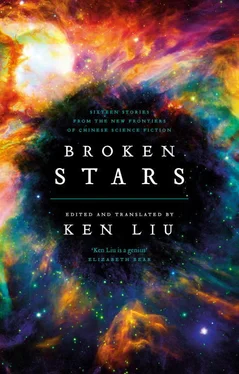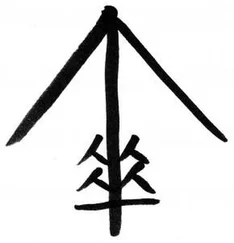Despite the rumors about us, I didn’t grow closer to Shen Qian; instead, I became even more convinced of the depth of my feelings for Qiqi. I thought: She might not be the prettiest girl and she’s far away in Shanghai, but I like her, and I’m going to be good to her. Unfortunately, with thousands of kilometers dividing us, I only heard news about her from occasional phone calls between our mothers. After the divorce, Qiqi lived with her mother, and though they were poor, Qiqi did well academically and managed to place into one of the best high schools in the city.
Oh, one more thing: during my middle school years, a short man named Deng Xiaoping rose to prominence and became a member of the Central Committee. Although Jiang Zemin was still the General Secretary, Deng held all the real power. Deng started a series of reforms aimed at nationalizing industry, and he justified his policies with many novel theories: “Socialism with Chinese Characteristics”; “it doesn’t matter whether it is a white cat or a black cat; a cat that catches mice is a good cat”; and so on. Lots of people became rich by taking advantage of the new opportunities, but many others sank into poverty. Because the economy was doing so poorly, the small company Dad worked for had to shut down, but with the Deng-initiated reforms, he got a job with a state-owned enterprise that guaranteed we’d at least have the basic necessities. Honestly, compared to the rest of the world, China wasn’t doing too badly. For example, I heard there was a financial crisis in Southeast Asia that affected the world; Russia’s economy collapsed and even college students had to become streetwalkers; there was a civil war in Yugoslavia and a genocide in Africa; the United States had pulled out of Iraq but maintained a blockade and sanctions….
None of this had much to do with my life, of course. The most important things in my life were studying, cramming for the college entrance examination, and sometimes thinking about Qiqi.
During my first year in high school, many people had “pen pals,” strangers they corresponded with. This wasn’t all that different from the web-based chats we used to have when we were little, but the practice seemed a bit more literary. I missed Qiqi so much that I decided to write her a letter in English—full of grammatical errors, as you might imagine—with the excuse that I was doing so to improve my English skills. Email would have been easier, but computers had disappeared from daily life, and so I had no choice but to write an actual letter. As soon as I dropped it into the mailbox I regretted my rash act, but it was too late. The following two weeks crept by so slowly they felt like years.
Qiqi answered! She’d certainly made more of that English-immersion kindergarten experience than I had: her letter was much better. Leaving aside the content, even her handwriting was pretty, like a series of notes on a musical score. I had to read that letter with a dictionary by my side, and I ended up practically memorizing it. I did feel my English improved a great deal as a result.
Qiqi’s letter was pretty short, just over a page. She mentioned that the math book I had given her more than a year earlier had been helpful, and she was grateful. She also recommended New Concept English to me, and told me some simple facts about her school. But I was most pleased by her last paragraph, in which she asked about my school, Heizi, and so on. Her meaning couldn’t be clearer: she was looking forward to another letter from me.
We corresponded in English regularly after that. We never said anything all that interesting: school, ideals in life, things like that. But the very fact that we were writing to each other made me incredibly happy. Just knowing that someone far away, practically on the other side of the world, was thinking about you and cared about you was an indescribably wonderful feeling. Qiqi told me that her mother had gotten married again. Her stepfather had a child of his own and was rather cold to her. She didn’t feel that her home was her home anymore, and wanted to leave for college as soon as possible so that she could be independent.
I finished high school without much trouble and did really well on my college entrance examination, so I could pick from several schools. Summoning my courage, I called Qiqi and asked her what schools she was picking. She said she didn’t want to stay in Shanghai, and filled out Nanjing University with a major in English as her first choice.
I wanted to go to Nanjing as well: one, I wanted to be with Qiqi; and two, I wanted to be away from my parents and try to make it on my own. But my parents absolutely would not allow it and insisted that I stay in Beijing. We had a huge fight, but in the end I gave in and filled out Peking University with a major in Chinese as my top choice. Heizi never made it into a good high school and couldn’t get into college at all, so he joined a department store as a sales clerk. Still, all of us believed that we had bright futures ahead of us.
4.
Compared to the close supervision we were under back in high school, college was practically total freedom. Although the school administrators, in loco parentis, weren’t keen on the idea of students dating, they basically looked the other way. Boys and girls paired up quickly, and the Chinese Department was known as a hotbed of romance. Several of my roommates soon had beautiful girlfriends, and I was very envious.
Shen Qian also got into Peking University, majoring in Politics. Our high school classmates all predicted we would end up together, but Shen Qian soon published some outrageous poems and articles in the school paper and became part of the artsy, literary, avant-garde crowd. Other than occasionally seeing each other at gatherings of old high school friends, she and I ran in completely different circles.
Qiqi and I continued our correspondence, but we no longer needed writing in English as an excuse. We wrote to each other every week, and our letters ran on for dozens of pages, covering everything silly, interesting, or even boring in our lives. Sometimes I had to use extra stamps. I really wanted to make our relationship formal, but just couldn’t get up the courage.
By the time we were second-years, the name of some boy began to appear in Qiqi’s letters. She mentioned him so casually—without even explaining who he was—as though he was already a natural part of her life. I asked her about him, and Qiqi wrote back saying he was the class president: handsome, fluent in English, and also in the Drama Club with her.
Unhappy with her response, I tried to draft a reply but couldn’t find the words. I would have pulled out my cell phone to call her, but by then no one used cell phones anymore. China Mobile had long since gone out of business, and the cell phone in my desk—a birthday present from my father when I turned ten—was just a useless piece of antique junk.
I went downstairs to use the public phone. Every residential hall had only one phone, and the woman who picked up on the other end was the matron for Qiqi’s residential hall. She interrogated me for a long while before she agreed to go get Qiqi. I waited and waited. One of Qiqi’s roommates eventually picked up.
“Qiqi is out with her boyfriend.”
I dropped the phone and ran to the train station to buy a ticket to Nanjing. I was at the door of her residential hall at noon the next day.
Qiqi came down the stairs like a graceful bird in a white pleated skirt, her hair tied back in neat braids. She appeared to be glowing with the warm sunlight. Other than a few pictures through the mail, we hadn’t seen each other since that summer in middle school. She was no longer a girl, but a tall, vivacious young woman. She didn’t look too surprised to see me; instead, she lowered her eyes and chuckled, as though she knew I would be here.
Читать дальше












